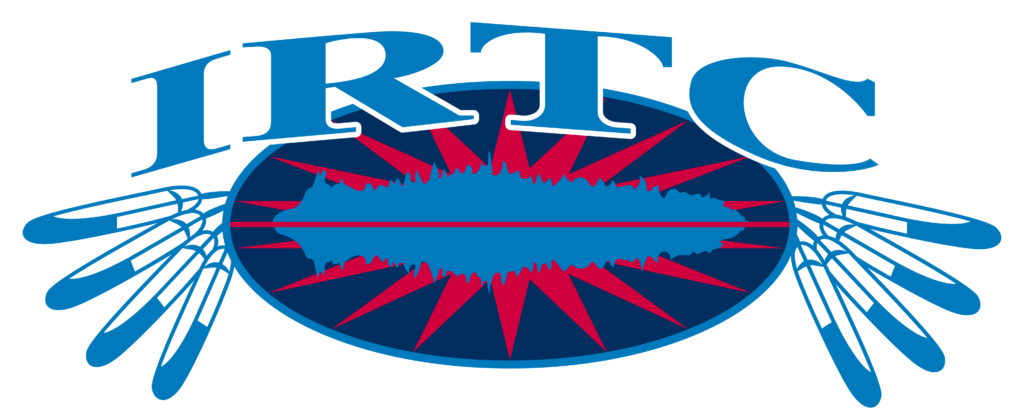First Nations leaders from the Interlake Reserves Tribal Council say they were blindsided after Manitoba announced a new $15-million economic development fund meant to assist communities affected by flooding in Lake Manitoba and Lake St. Martin — calling it “crumbs” compared to the now estimated $600-million project.
In early October, Transportation and Infrastructure Minister Doyle Piwniuk announced that the province would develop a $15-million fund to support Indigenous economic development opportunities related to the Lake Manitoba and Lake St. Martin outlet channels project.
The project involves building two approximately 23-kilometre-long outlet channels to enhance flood protection for communities around Lake Manitoba and Lake St. Martin, according to an Oct. 5 news release.
“This is a slap in the face towards our governments,” said tribal council chief executive officer Karl Zadnik, at a Wednesday news conference.
Zadnik says on one side of the channels is a cultural site that contains bones and pottery, and on the other is a place where lake sturgeon spawn. Both sites need to be handled with care as they are important to nearby communities, who the province continues to fail when it comes to proper consultation, he said.
“You continue to dictate to us what these terms are in terms of being a participant on this project. I’m sorry, but you’re being a participant on our land,” said Zadnik.
The new fund will be administered as a proposal-based funding program, the province said, and applications will be open to 39 Indigenous groups involved in the outlet channels project.
“Lake Manitoba First Nation won’t be applying for a penny of that,” Chief Cornell McLean said.
The member nations of the Interlake Reserves Tribal Council (IRTC) are also unhappy with the number of other communities able to apply for the funding, since they say many are not as impacted by the flooding they face.
“We feel again that we have been given the short end of the stick,” said Byron Swan, a band councillor for Lake Manitoba First Nation.
He says $15.9 million split between 39 communities equals around $400,000 each — the cost of building a single house.
“To get a four-bedroom house on a First Nation costs $380,000,” said Swan.
Swan is against the new economic development fund as a band member and as a councillor, and says the province told the IRTC what they wanted to hear during meetings last summer. First Nations members left those meetings feeling hopeful, he says, because they thought the province was finally recognizing the First Nations as an equal partner in the project.
“We just got blindsided again,” said Swan.
Last June, Chief Justice Glenn Joyal of the Court of Queen’s Bench ruled that the province did not live up to its constitutional duty to consult First Nations involved with the outlet project, which has yet to be approved, as environmental regulators in Ottawa have questioned whether the provincial government has done enough to address nearby First Nations concerns.
In an email to CBC News, a spokesperson for the province said it will collaborate with Indigenous communities involved with the outlet channels project to develop a framework for the $15-million fund before its official launch.
“The province remains strongly committed to fulfilling its duty for Crown-Indigenous consultation before environmental approvals are received and before construction begins,” the email said.
The fund “provides an opportunity for these Indigenous groups to submit proposals,” the email said, but it did not address the IRTC’s concerns about it being very little when shared among 39 communities.
The province said it will share more details about program eligibility, the intake process and funding agreement requirements in the coming months.
Swan says the government has failed to consult the affected communities and is instead dictating what First Nations should do.
Their communities want to see fair consultations from the province, he said.
“Consult us properly — not with emails, not with paper, but face to face.”
The province’s email said it is prepared to start construction on the outlet project — which is expected to take three or four years to complete — as soon as it receives regulatory approvals.
The overall cost of the project has increased $60 million from the 2018 estimate of $540 million, now sitting around $600 million.
The increase includes the new $15-million fund as well as costs associated with additional measures to reduce the environmental impact of the project.
Discussion about federal cost-sharing of the $60-million increase is ongoing.
ABOUT THE AUTHOR
Özten Shebahkeget is an online reporter at CBC Manitoba. She is a member of Northwest Angle 33 First Nation, born and raised in Winnipeg’s inner city. She recently completed the master’s in fine arts writing program at the University of Saskatchewan where she wrote a speculative verse novel set at the Manitoba legislative building. You can send feedback, ideas and tips to ozten.shebahkeget@cbc.ca.


